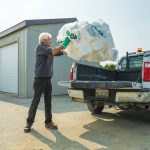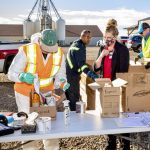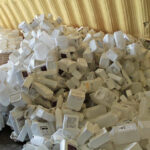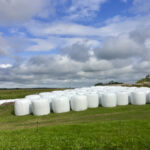
Tag Archives CleanFARMS

New face, new focus for Cleanfarms in Manitoba
Recycler adds staff member to co-ordinate shift to retail collection away from municipal sites

Farm retailers take over collection of ag plastic jugs
Dropping off jugs at ag retailers will be more convenient, says Cleanfarms

Manitoba nearly doubles recycled ag plastics
Cleanfarms celebrated a banner year across Canada, according to its annual report

Ag diploma students meet with Cleanfarms
A class project turned into a real-life demonstration of how to affect change

Lessons learned at KAP meeting
Ag diploma students took a resolution to KAP and taught everyone — including this reporter and themselves — a few things

Older grain bags and used baler twine can still be recycled
The start of a new permanent program in Manitoba doesn’t affect existing efforts

Cleanfarms completes count of Canadian ag plastics
Manitoba agriculture generates about seven per cent of ag plastic in Canada

Agriculture an opportunity in the push against plastics
Agricultural residues are often critical pieces in bioplastics, including products now being developed as plastic alternatives for agriculture and agri-food

Agri-plastic recycling program launched
Bale twine and grain bags will be accepted under the new provincially regulated program

Cleanfarms Manitoba sees slight recycling dip in 2020
Canada-wide, Cleanfarms has recycled enough containers to stretch around the world 1.3 times


